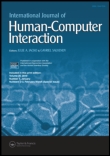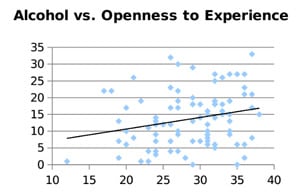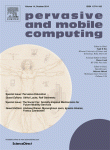A paper authored by Assistant Professor Adam Feltz (CLS) titled “Folk Intuitions” has been accepted for publication in the forthcoming book “The Routledge Companion to Free Will” published by New York: Routledge.

Assistant Professor Myounghoon “Philart” Jeon (CLS) authored an article, “Menu Navigation With In-Vehicle Technologies: Auditory Menu Cues Improve Dual Task Performance, Preference and Workload” published in the International Journal of Human-Computer Interaction.
DOI:10.1080/10447318.2014.925774
Adam Feitz (CLS), “Can We Model Moral Disagreement?” National Endowment for the Humanities
Your Typing Style Can Reveal Your Emotions
In a new study, researchers asked a small group of people to type a block of sample text, and then analyzed the keystrokes and characteristics to see if they could identify any of seven different emotional states: joy, fear, anger, sadness, disgust, shame or guilt.
The newly described emotion-detecting system “does not look like a breakthrough,” Myounghoon Jeon, an assistant professor of applied cognitive science at Michigan Technological University who was not involved in the study, told Live Science. “But [the researchers’] effort to integrate the existing methods looks fair, positive and promising.”
However, Jeon said the method of detecting emotions in text that was used in this study has some limitations.
PH.D. ASSISTANTSHIP IN APPLIED COGNITIVE SCIENCE AND HUMAN FACTORS FOR RETURNED PEACE CORPS VOLUNTEER
Position available with Applied Cognitive Science and Human Factors Ph.D. Program in the Department of Cognitive and Learning Sciences, Michigan Technological University, Houghton, Michigan. Begins Fall Semester 2015.
Duties: doctoral program requirements (www.mtu.edu/cls/applied/overview/) ; assist Director of Peace Corps programs 20 hours a week in management of and recruitment for University’s Peace Corps Master’s International program (www.mtu.edu/peacecorps).
Qualifications: Returned Peace Corps Volunteer status; B.A./B.S. in Psychology, Engineering, Computer Science, or related field; desire to pursue Ph.D. in Applied Cognitive Science/Human Factors.
Tuition and stipend provided. For stipend levels, see: http://www.mtu.edu/gradschool/admissions/financial/assistantships/stipends/
Consideration of applications begins immediately and will continue until the position is filled. For more information and to apply, contact Dr. Susan Amato-Henderson (slamato@mtu.edu), phone: 906-487-2536.
Website: http://www.mtu.edu/cls/applied/overview/

Assistant Professor of Psychology Shane T. Mueller is proud to announce the publication of the second volume of the “Journal of Midwest Undergraduate Behavioral Research (JMUBR)“, which contains short research papers reporting the results of the research conducted in Psych 3001 during Spring semester 2014. JUMBR is edited by Shane Mueller.
Some highlights of their findings in Volume II:
* Although people will use stereotypes based on age and gender when assigning perceived personality traits based on pictures alone, they are able to ignore these factors when making simulated hiring decisions (Evans, Schreifels, & Eby, 2014).
* Based on a survey of members of social media communities related to alcohol use, abuse, and recovery, Panasiewicz, Santerre, and LaFave (2014) found consistent correlations between an alcohol risk self-assessment (AUDIT) and two personality factors (positive with openness to experience; negative with conscientiousness)
* Nelson and Coon (2014) examined versions of the ‘Trolley’ study moral dilemma and showed that, although this task is used frequently to identify moral decisions and attitudes, people’s responses to the question are unrelated to many real-life moral behaviors (e.g., giving to charity) and to responses on real-world examples that have a similar form (sacrificing the good of the few for the good of the many).
* In an effort to examine the reasons both undergraduates and graduate students give for enrolling in graduate school (specifically at MTU), Kemppainen, Suokos, and Wetelainen (2014) found that values and reasons appear to differ between these two groups. Importantly, successful graduate students were as likely to be attracted by the depth of learning offered as by the prospect of a job, whereas undergraduates were more interested in graduate school as an avenue toward a job.
*Jordon and Boardman (2014) examined how physical activity impacts the mental capacity of collegiate athletes. Results indicated that as athletes proceed during their workout, the speed of some of their cognitive skills increases, perhaps at the cost of greater errors.
*Harter, Mauer, and Yovich (2014) looked at prior ADHD diagnosis, responses to the ADHD Adult self-report scale, and cognitive attention tasks. Although in this sample of mostly young adults without prior ADHD diagnosis showed little relationship between measures, results indicate that the scores of a significant proportion (greater than 90%) of college students on the ADHD self-report scale place them in the “warning zone” for ADHD diagnosis.
A paper authored by Assistant Professor Adam Feltz (CLS), “Predicting Attitudes about Euthanasia,” has been accepted for publication in the forthcoming book “New Directions in the Ethics of Assisted Suicide and Euthanasia,” edited by M. Cholbi and J. Varelius and published by New York: Springer.

Jason Sterkenburg’s (CLS) MS thesis proposal, “Physical, Cognitive and Emotional Distraction While Driving: A Comparative Analysis,” has been selected for inclusion in the Doctoral Colloquium at the sixth International AutomotiveUI Conference.

Assistant professor, Myounghoon “Philart” Jeon (CLS) and international collaborators edited a journal special issue, “The Social Car: Socially Inspired Mechanisms for Future Mobility Services” in the journal Pervasive and Mobile Computing, vol. 14.
DOI: 10.1016/j.pmcj.2014.08.007

Assistant professor, Myounghoon “Philart” Jeon (CLS) traveled to Seattle’s University of Washington, where he co-organized a full day workshop on “Social, Natural, and Peripheral Interactions: Together and Separate” at the 6th International AutomotiveUI Conference. Jeon and his students also presented some of their recent research projects.